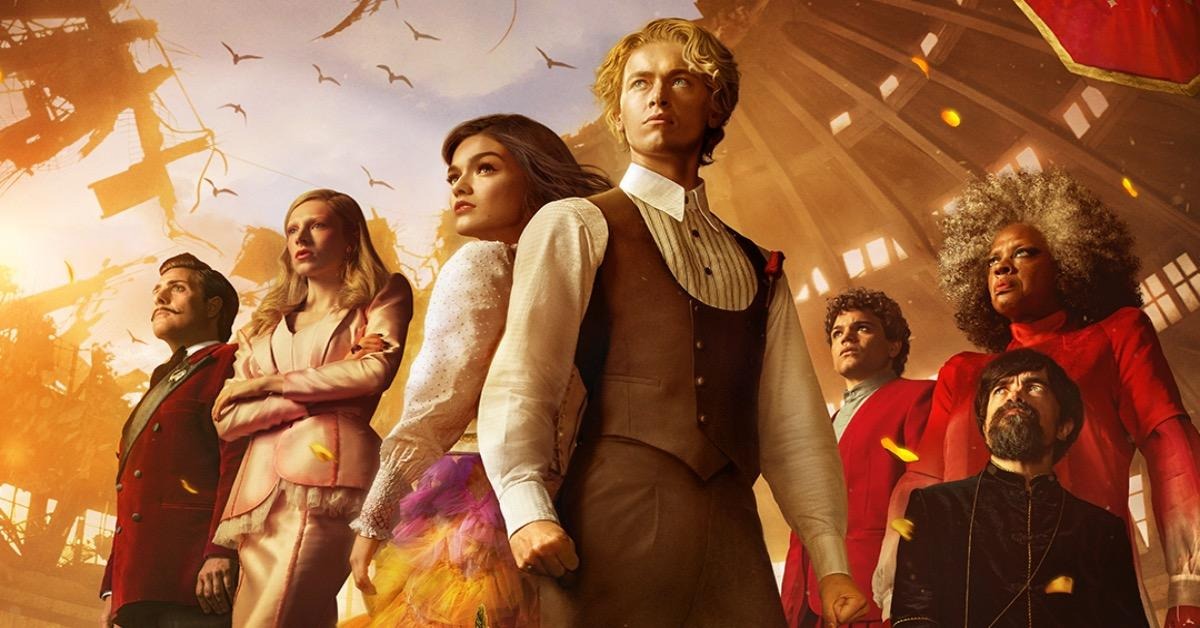I initially had high hopes for the latest installment of “The Hunger Games” film franchise, “The Ballad of Songbirds and Snakes.” Set 64 years before the first “Hunger Games” movie, the prequel details the rise of the original series’ villain, President Snow, during and after the 10th annual Hunger Games. Its premise seemed promising enough: Young Capitol University student Coriolanus Snow (Tom Blyth) is forced into mentoring scrappy District 12 tribute Lucy Gray Baird (Rachel Zegler), a girl whom no one expects to survive an hour in the arena. By playing to Lucy Gray’s strengths of singing and performing for a crowd, the two of them change the shape of the Games forever, turning them from a simple political punishment into a days-long spectacle.
The movie chose to explore some interesting themes, and the few moments where they do land right are when the film is at its best. The second of its three sections, which follows the Games themselves, is admittedly pretty solid. The tributes fight to the death in a primitive stone stadium leaps and bounds away from the expansive forest arena of the original “Hunger Games.” The “Hunger Games” TV broadcast within the film had spotty camera coverage at best, with a tribute death even occurring off-camera. Seeing how the Games have evolved over the years and why some of its more frightening aspects were developed—including the sponsorship system for tributes and the interviews they undergo with the Games’ host—is thought-provoking and appropriately expands on the worldbuilding from the original trilogy.
Unfortunately, the rest of the movie falls flat for a couple of reasons. First off, its pacing is atrocious. The events of the first and third parts of the movie fly by; both sections are far too rushed. The third act’s pacing is especially bad, abruptly shifting in tone from the urgency of the Games to try and give Snow and Lucy Gray a romantic reunion in District 12. This entire section drags and worse, is hard to understand. The movie tries to keep Snow’s motivations open to interpretation, but this vagueness as he descends into villainy only confuses the viewer further. I don’t want to spoil anything, but the event that truly seals Snow’s fate—and Lucy Gray’s—isn’t even definitively answered by the movie. I think that the ending would have been much more powerful if it was.
The second problem with “The Ballad of Songbirds and Snakes” is that it falls into the classic franchise prequel trap. Instead of focusing on telling a good story and developing its characters—neither Snow nor Lucy Gray nor their relationship are well-developed in my opinion—the movie rather spends its time on inserting Easter eggs and callbacks to the original franchise. In one painfully obvious scene, Lucy Gray harvests some of the “swamp potato” that was the namesake of the protagonist of the previous movies, and remarks that it’s “too early” for Katniss. The dialogue throughout the movie is often cheesy, with multiple snow-related puns, the worst of which is probably “Snow always lands on top.” Moments like these truly took me out of the action of the movie, making me forget about the awfulness of the Capitol and laugh at its ridiculousness instead.
The musical aspect of “The Ballad of Songbirds and Snakes” has a similar issue. The brutality and violence of the Games does not pair well with Lucy Gray’s frequent singing, which I could sometimes tolerate outside of the arena but never within. Not only does it seem out-of-place and frivolous, it’s honestly just annoying. While Lucy Gray’s stage presence is important to the plot as it brings her valuable financial support from the Capitol, I could have done with a condensed soundtrack.
But the worst part of the failure of “The Ballad of Songbirds and Snakes” is that, at least from my perspective as an outsider, its lackluster quality was more than preventable. One solution: simple editing. Cut out as many unnecessary scenes as possible to give more time to the rushed third act. Another financially riskier move would have been to split “The Ballad of Songbirds and Snakes” into two parts. I’m usually all for a self-contained story, but in this case, I think that a second installment would have given the movie the time it needed to catch its breath and flesh out its main characters. Plus, the original book is a whopping 528 pages—that’s a tall order for a single film adaptation. I didn’t get around to reading “The Ballad of Songbirds and Snakes,” but I’m sure that the movie already cut out a lot of plot points that we didn’t get to see.
With all said and done, though “The Hunger Games: The Ballad of Songbirds and Snakes” disappointed me, I’m still glad I saw it. I loved “The Hunger Games” franchise growing up, so the movie was a nice opportunity for me to revisit something from my childhood. Tom Blyth and Rachel Zegler are both talented actors in spite of the terrible script, as are many members of the supporting cast—Hunter Schafer and Viola Davis are two that come to mind. Plus, while critics generally agreed that the film was half-baked, general audiences seemed to think it was an excellent adaptation of the book. If you were a fan of the original books and/or movies, I would recommend seeing “The Ballad of Songbirds and Snakes” for yourself, if only for the nostalgia factor. You likely might disagree with me.



